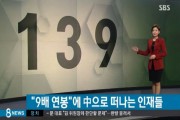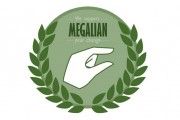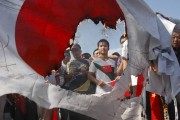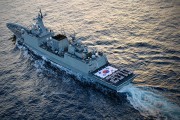Article from News1: [September 15, 2015]
S&P Upgrades Korea’s Credit Rating, Surpasses China, Japan
International credit rating company Standard and Poor’s upgraded South Korea’s long-term national credit rating from A+ (positive) to AA- (stable). It was granted a ‘stable’ outlook. The short-term rating was raised from A-1 to A-1+.
This is the first time that all three credit rating agencies have given Korea an AA-, it’s highest rating ever. Until now, Korea had only received that score from two agencies at most.
Korea’s credit rating with S&P was calculated at an A+ in both September of 2012 and September of last year.
An amicable policy environment, a consistent financial situation, and excellent foreign ties with net creditor nations mainly contributed to the rating upgrade.
It was forecast that stable growth compared to other developed countries would be maintained for three to five years down the road. S&P estimated that Korea’s real GDP would grow by three percent and that average GDP per capita would exceed 30,000 dollars in 2018.
As for the Korean economy, S&P deduced that Korea holds a diverse foundation that doesn’t rely on any one export market or industry and that Korea’s export slump this year was small when compared to other countries.
Consolidated financial expenditures recorded a surplus overall and the net government debt slightly exceeded 20 percent of GDP, a satisfactory level.
The firm also predicts that the Korean government and financial realm’s foreign liquid assets will exceed total foreign debt by 30 percent in 2015 in current account receipts (CAR), compared with 21 percent in 2014.
The proportion of net foreign debt held by domestic banks in CAR was estimated at zero percent in 2014, as opposed to 24 percent in 2007.
The average debt expiration of domestic banks was prolonged and the total short-term foreign debt held in CAR decreased.
The Ministry of Strategy and Finance revealed that, ‘S&P’s high evaluation of the Korean economy resulted from a foundation of integrity in foreign ties, steady growth during a worldwide economic slowdown, and consistent structural reform to promote the expansion of growth potential’.
‘When the gravity of geopolitical risk is considered, a key factor in this credit upgrade was the easing of tensions with North Korea.’
Only eight countries in the G20 have received higher than an AA- from all three major credit rating companies: the United States, Germany, Canada, Australia, the United Kingdom, France, Saudi Arabia, and now Korea. Worldwide, 22 countries have received such ratings.
Korea’s average credit rating has now risen higher than China and Japan. S&P gives all three countries an AA-, but casts a ‘negative’ outlook on Japan. Moody’s evaluates Japan at an A+ and Fitch gives China an A+ and Japan an A, all lower scores than Korea.
Korea is the only country to receive a credit rating upgrade from S&P after 2014, the global period of economic stagnation.
This is highly meaningful when the number of credit downgrades due to the United States’ potential interest rate hike, China’s economic slowdown, and instability in emerging markets is considered.
The credit ranking upgrade is anticipated an an opportunity to be acknowledged as an advanced economy by international investors.
This could also be connected to a cost reduction in foreign borrowing by economic actors.
If additional interest on foreign bonds fell by 10 to 20 basis points, a total foreign debt of 420 billion dollars (the current debt as of June) would experience a direct cut of 40 to 80 million dollars.
Financial institutions and public enterprises are predicted to see a reduction in foreign borrowing costs through the credit rating upgrade.
This is because the country’s credit rating is treated as the ceiling for domestic financial institutions and companies’ credit ratings.
In September of 2012, when S&P raised Korea’s credit rating, institutions like the Export-Import Bank of Korea, the Korea Housing Finance Corporation, and the Small and Medium Business Corporation were also upgraded.
Our economic ability to respond to foreign variables may also evolve.
The Ministry of Strategy and Finance explained that, ‘With risk factors like America’s interest rate hike and China’s economic slowdown present, should market instability manifest itself, this becomes a foothold to clearly distinguish us from developing countries in the eyes of investors’.
It also predicted that, ‘This will demonstrate that indexes of foreign integrity like capital flow or credit default swap are relatively stable’.
Comments from Naver:
lowr****
I hope the lives of everyday citizens is upgraded accordingly.
dabi****
This deserves celebration… but am I the only one who doesn’t understand this?
suns****
Wow, this is huge.
abcd****
Yeah, I’m so proud! Republic of Korea!
enge****
Citizens have a very negative outlook. They would give it an F.
erp1****
It’s not that our country lacks money, it’s just that there are a lot of thieving bastards.
kh07****
Let’s be careful when we’re doing well. The 1997 foreign exchange crisis happened right after we joined the OECD…
rhle****
So the rating goes up when we don’t give in to North Korea
neop****
In October 1997, right before the IMF intervened, S&P gave us an A+ grade. Two months later, the IMF intervened.
song****
This means nothing to everyday citizens.
fore****
Our national debt is at its peak, yet they upgrade our credit rating. What’s going on…
skn1****
The country is rich, so why does my debt keep accumulating? When others are driving midsize foreign cars, I need one too. When others graduate college, I want to attend too. When others buy imported strollers, I need to buy one too. When others cover themselves in name brands, I need to buy a few too. When other people get nice phones, I need to get a new phone every year too. When others eat fancy food at expensive restaurants, I need to go there too. When others grab a girl and go drinking at a nice bar, I need to also. When this happens, debt keeps accumulating even if income levels remain constant.
neow****
Real estate debt is no joke…I’m leery about this… they upgrade our credit rating and in an instant we’ll have a housing bubble…
vari****
Brazil’s speculative rating dropped a few days ago. Despite also being in a rough spot, Korea is instead promoted. For the first time, we get an AA- from all three credit rating companies, damn.
yhch****
What a positive article at a time of ups and downs for Korea. There’s bound to be plenty of positive stories, so why do reporters only cover negative ones? According to our nation’s media, over the past couple decades we should have already collapsed dozens of times.







